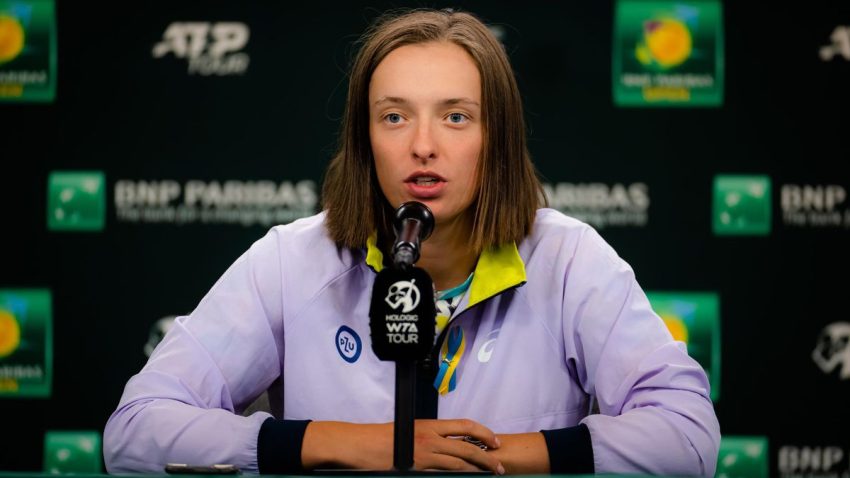Tennis world No. 7 Iga Świątek has always been known for her calm demeanor on the court—but off it, she proved she’s not afraid to swing back when pushed too far. Following her surprise semi-final loss at the French Open 2025, the Polish star made headlines not just for the defeat—but for the frosty exchange that followed in the press room.
After losing to rival Aryna Sabalenka in a tough three-set match (6-7, 6-4, 0-6), Świątek sat down for what should’ve been a routine post-match press conference. Instead, it quickly turned into a viral moment. A reporter, analyzing her performance, asked why she had faded so drastically in the final set, suggesting a pattern in her recent losses: strong starts, followed by inexplicable collapses. Comparing the match to her earlier defeat against Elena Rybakina, the journalist pressed whether the fault was with her mental focus or the rising quality of her opponents.
That’s when Świątek’s temperature dropped.
She paused, gave the reporter a long look, and asked sharply: “What kind of question is that?”
The room went quiet.
When the journalist attempted to clarify—saying it was just an inquiry about her third-set performance—Świątek didn’t hold back. “So I’m supposed to win the third set next time because you have a theory?” she replied, visibly annoyed. It was a rare moment of public frustration from the normally composed athlete.
The clip spread like wildfire online, trending across Reddit, X (formerly Twitter), and tennis forums. Fans were divided: some praised Świątek for standing up to what they saw as a condescending, speculative line of questioning; others felt she could’ve handled it more professionally. But no one could deny—it made for gripping drama.
Świątek later regained composure and spoke about the match more reflectively. She acknowledged Sabalenka’s aggressive strategy, noting that her own backhand had faltered and that the Belarusian star “just played better tennis.” But the sting of the reporter’s question clearly lingered.
For many athletes, post-match interviews are as emotionally taxing as the matches themselves. They’re expected to face a global media frenzy moments after heartbreaking losses—poised, diplomatic, and smiling. Świątek’s reaction wasn’t just a snap—it was a window into the emotional pressure top athletes endure, and a reminder that even the best have their boiling point.
The exchange also reignites the conversation around the line between tough journalism and poor taste. Is it fair to suggest an athlete is mentally weak after a single bad set? Or does the media sometimes forget that these players are human first, professionals second?
As Świątek moves into the grass-court season, her moment of press-room defiance may just become part of her growing legend. She’s not just a dominant player—she’s showing she won’t be boxed in by narratives, especially not ones that question her mental fortitude without merit.
And next time a reporter steps into the room, they may think twice before asking her what kind of player she is. Because now, they know the answer might come colder than a Parisian clay night.
